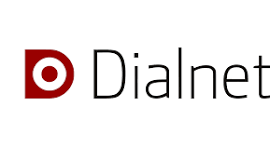Use given to the MOODLE Platform by university teachers
Keywords:
MOODLE, teacher, University, Forum, chat, resourceAbstract
The objective of this research is to describe the use given to the MOODLE platform by the teachers in the gas engineering career of the National Experimental Polytechnic of the National Armed forces (UNEFA), in Trujillo state. It´s a descriptive investigation, based in a non experimental field research, it was carried out with 46 teachers and 88 students related of the mentioned career. The technique used to obtain the information was the survey; for the data collection instrument was use a closed question questionnaire with a dichotomous type; this instrument was validated through the expert consultation and its reliability through the coefficient of Kuder Richarson, obtaining a value of 0.90. In order to process the information was used a descriptive statistic, based on the frequency distribution and percentage. The outputs of the study conclusion were that the UNEFA´s teachers know how to register in the platform, but only an average used it. In addition, they know a little about the evaluation form through the platform use. Promoting by this way a little self- evaluation of the students. For this reason, only an average of the teachers of the Gas Engineering career know how use the virtual platform. Finally, the task module is the most used by the teachers, followed by the resource module and the chat but the form modules were keeping as the least used by the teachers, then, the University´s teachers prefer to use the platform in modules, which require less time and dedication by them, showing little dedication to their virtual tutoring functions.
References
Alvarado, A. y Dorrego, E. (2003). Tecnología Educativa y Tecnologías de la Comunicación en Venezuela. Revista Comunicar. Nro 21. Disponible en http://redalyc.uaemex.mx/redalyc/pdf/158/15802110.pdf. España: Grupo Comunicar. [Consulta: 15 ene 2010]
Constitución de la República Bolivariana de Venezuela (1999). Asamblea Nacional. Caracas, Venezuela
Cuevas, O.; García, R. y Cruz, I. (2008). Evaluación del impacto de una plataforma para la gestión del aprendizaje utilizada en cursos presenciales en el Instituto Tecnológico de Sonora. Revista Mexicana de Investigación Educativa. Vol. 13, núm. 39, pp. 1085-1107. México.
García, L.; Ruiz, M., Domínguez, D. (2007). De la educación a distancia a la educación virtual. Primera edición. Editorial Ariel, S.A. Barcelona
Gómez, J. (2006) Moodle 1.5 - Manual de consulta Secretariado de Educación “La Salle”. Distrito de Valladolid. España. Disponible en: http://www.gnu.org/copyleft/fdl.es.html. [Consultada: 02 ene 2010]
Hurtado, I.; Toro, J. (2007) Paradigmas y métodos de investigación en tiempos de cambio. Los libros de El Nacional. Editorial CEC, SA. Caracas, Venezuela.
Llinás, H. (2006). Estadística inferencial. Ediciones Uninorte. Barranquilla, Colombia
Llorente Carmen. (2007). Moodle como entorno virtual de formación al alcance de todos. Revista Comunicar. Núm. 28. Vol. 202
Martínez, J. (2004). El papel del tutor en el aprendizaje virtual. Disponible en: http://www.uoc.edu/dt/20383/index.html [Consultada: 23 mar 2010].
Moodle. (2008). Disponible en: http: //docs.moodle.org/ es/P%C3%A1gina_ Principal. [Consultada: 25 ago 2010]
Pérez, M.; Martín, M.; Arratia, O.; Galisteo, D. (2009). Innovación en docencia universitaria con Moodle. Casos prácticos. Editorial Club Universitario. San Vicente (Alicante)
Reyes, R.; Cabrera N.; Estévez, G.; Jiménez, G. (2009) La evaluación del aprendizaje usando las actividades de Moodle. IV Conference m- ICTE. Portugal. Disponible en: http://www.formatex.org/micte2009. [Consultada: 25 mar 2010]
Salinas, J. (2006). Multimedia en los procesos de enseñanza - aprendizaje: Elementos de discusión. Ponencia en el Encuentro de Computación Educativa. Santiago de Chile. http://www.uib.es/depart/gte/ multimedia.html. [Consulta: 15 sep 2010]
Sánchez, J. (2006) El chat en la teleenseñanza: implicaciones comunicativas y la oportunidad de un enfoque didáctico Grupo de Investigación de Tecnología Educativa de la Universidad de Murcia. España. Disponible en: http://www.ciedhumano.org/edutecNo12.pdf.
Tamayo y Tamayo, M. (2003). El Proceso de la Investigación Científica. 4ta edición. Editorial Limusa. México. Disponible en: http://www.scribd.com/ doc/12235974/Tamayo-y-Tamayo-Mario-El- Proceso-de-la-Investigacion-Cientifica. [Consultada: 25 ene 2011]
UNESCO (2008) Estándares de competencias en tic para docentes. Londres. Disponible en:
http://www.eduteka.org/EstandaresDocentesUnesco.php. [Consultada: 25 feb 2010]
Wielage, G. (2000) Gran libro Windows 2000 profesional. Editorial Marcombo, S.A. España.
Downloads
Published
How to Cite
Issue
Section
License
Copyright (c) 2017 José Isidro Chirino H. , Evelyn Dayana Briceño P.

This work is licensed under a Creative Commons Attribution 4.0 International License.








